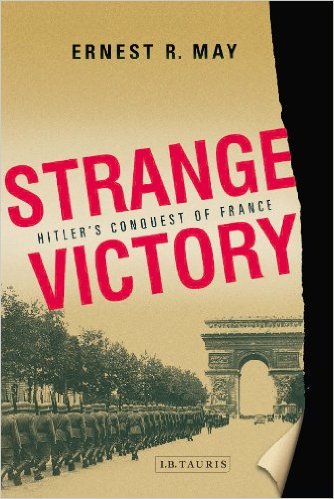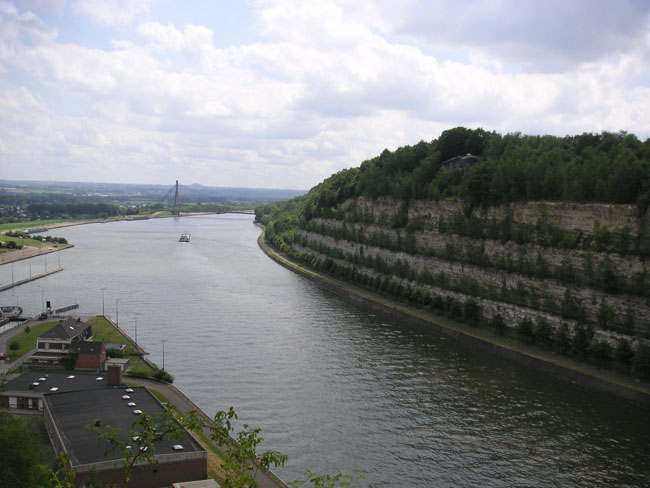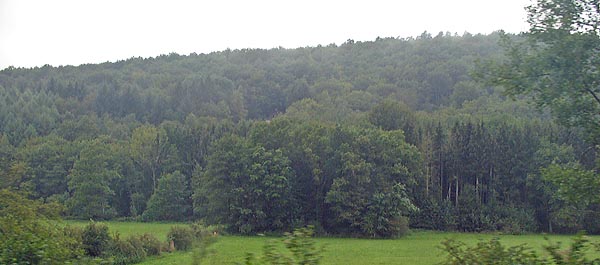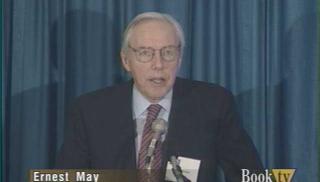‘What experience and history teach is this: That people and governments never have learned anything from history or acted on principles learned from it.’ Thus spake George Hegel in the ‘Lectures on the Philosophy of History.’
In contrast Ernest May explains the German victory ‘in terms applicable beyond its character or epoch’ as a parable for other times and other places. We can learn from history is the burden of this phrase. We can but do we.

This tome sets out to qualify, refute, and set aside the three most common interpretations of the Fall of France. Instead the Allies’ major error was to misunderstand German intentions, both politically and militarily.
These are the three common explanations of the German defeat of France.
1.That the Germans had a crushing superiority of men and material.
2.That the French and British were badly led.
3.The French people were morally lax.
Of course, there is some truth in each, which is why they have taken root, but May’s claim is that they are not decisive either alone or in combination. The Defeat was not a sure-thing, but rather a long shot with such a high risks that only a singular mad man like Hitler would do it. ‘Singular’ is not the right word. What I mean is that he alone decided, while in the Western countries there were many hands at work.
Against (1) the French and British had better weapons, e.g., French tanks, and more airplanes in the RAF. In addition, there was that large and well-equipped French Army. The German generals were dubious that they could match the Allies, and said so repeatedly to each other and to Hitler.
Against (2) there were many excellent leaders in a situation that defied rationality, i.e., Hitler wanted war and that was a fact Neville Chamberlain and Édouard Daladier could not perceive, themselves horrified at the prospect of another war. The most significant leadership failure is probably Belgium’s King Leopold’s vacillation and that of his government. Certainly May does not gloss over this one. He also acknowledges that French generals (1) did not switch from peace time budget politics, crying poor, to war time reality easily and that there were political rivalries among them that were more important to some than the fighting and (2) the leisurely way communications were done by courier rather than telephone and the many levels orders had to go through to be issued and obeyed. These latter points were structural, it is true, but they were designed and implemented by the very French generals who later complained of these cumbersome structures, e.g. Gamelin. As to the former, May admits that Daladier had little hold on either cabinet or parliament and that Paul Reynaud’s decision to replace Gamelin in the midst of the battle with the seventy year old Weygand who had to fly to France from Syria was bound to fail. But Reynaud had to show the public he was acting. Well did he? Or would a stronger leader have weathered that expectation?
Against (3) the French had developed a resolve to resist by the time the Polish crisis occurred. Indeed the political leadership sensed this swing in public sentiment and that is what caused both the French and the British governments to go to war on the assumption that the public would not tolerate another compromise. Maybe but it is also true that there thirteen political parties, each jockeying of position, in the French parliament and they had a professional interest in disagreeing.
That there were doubts, fears, worries, hesitations among German generals is well known. Is not that always the case? Even the most bellicose general, when D-Day dawns has doubts, hesitations, delusions. Think of George McClellan’s fantasies about the grey hosts over the hill. Of Bernard Montgomery’s endless demands for more until he outnumbered the rump of the Afrika Corps 15 : 1 and then he still waited. Think of General Hermann von François waiting too long to execute his part of Schlieffen Plan. Think of General James Longstreet waiting for hours before ordering Pickett’s Charge. No general can ever had enough to be absolutely sure at any level of command. That the German victory was against the odds may well be true, but the qualms of generals is not proof of that contention. May seems to be insensitive to this general tendency.
And surely part of that demand for ever more material and men before committing to battle is done with one-eye on history. If made to fight now, and I lose, it is the politicians who are responsible for pushing me into the fight ill-prepared. If made to fight right now, and win, it is because I overcame the odds. Victory has a thousand fathers and defeat is an orphan. Many reports, appraisals, estimates are written for history to exculpate the writer, or to wring more funding from the niggardly political masters or both. ‘History memos,’ cynics call them. May seems insensitive to this common occurrence.
The divisions among the French cannot be papered over, though the author argues that there were periods, most of them of two or three years, when there were different alignments. Yes, and no. Yes there were accommodations but no, because many of the differences were deeply etched into history, regionalism, ideology, and religion. I am not convinced that there were significant changes. The social divisions in France were many and ran deep, and they certainly did not make France strong and imposing in Hitler’s perception. May seems to treat these divisions too lightly and to conclude that by September 1939 they had disappeared.
One of the things I do get from this book is that Hitler rose above the details of the arguments, how many airplanes, what range of flight, the number of bombs, the rate of production, the thickness of armour plating, the training time of pilots, and thousands of other technical details about training and equipment of all arms, and concentrated his assessments of France and England on the willpower of the elites to resist, to fight. While German officials and officers would cry poor because of the myriad of technical details involved, Hitler set little store by these facts. After an hour presentation on some such aspect of preparation by a general, he would wave it away with hand and talk about setting a date, next week, for the assault, leaving some general in stunned silence. The German generals delayed and argued for ever later dates. If left to their own devices, they would have been still planning the Western offensive in 1960. For them, planning, like management today, was an end in itself.
Also themselves deeply involved with technical details, Allied generals supposed that at some point German generals would talk Hiller out of a Western offensive, since on all the data the combination of France and England had the advantage, the more so adding Belgium and the Netherlands. Though Hitler saw this combination of allies as a weakness instead of a strength because the consultations would slow things down, the differing procedures would lead to confusion, the many heads involved would disagree, and there would be language barriers. He was right in all of these. May is silent on the fundamentals of Allied cooperation.
Instead of a direct attack on France the Allies anticipated an attack on Netherlands to get airbases on the English Channel, and perhaps on Belgium to close the port of Antwerp. Hitler played to that assumption with the first attack there, which proved to be a diversion, but it took far too long for that to be realised. That is, the French along with the British Expeditionary Force moved into Belgium to meet this attack and then got cut off by the main offensive in the south.
Added to that mindset the myriad of false alarms from November 1939 to May 1940, and the author does a good job of showing just how many false alarms there were, and how heavily qualified each was, along the lines of an ‘immediate attack will occur tomorrow, maybe, possibly, or not.’ He compares these occurrences to the warnings about Pearl Harbor to good effect. Some of these false alarms may have been planted by the Germans to weary, distract, confuse the Allies. It worked.
That Hitler did not attack the West immediately after Poland was at the time proof to many that the Germans were afraid of the might of the French army and the British airforce and would not attack later. This became another article of faith that led to the belief that an attack on the Netherlands and Belgium was most likely.
Meeting Neville Chamberlain and Édouard Daladier face-to-face at Munich sealed the deal. Hitler saw no fight in either. At Munich Daladier said nothing, literally nothing. He was completely worn down by the back-biting and conflict within the French parliament and was counting the days until he would be displaced. (On Daladier, see the superb 2009 novel ‘The Ghost of Munich’ by Georges-Marc Benamou.) Benito Mussolini dominated the proceedings speaking a German no one could understand, but eschewing translators. That fog and mist suited Hitler for whom the meeting served other purposes (showing his generals he was willing to negotiate though he was not, buying time for preparations, courting world opinion, keeping the Soviet Union guessing, more closely involving Italy in his machinations, misleading all those who took him at his word, and, finally, assessing his opponents), the details were unimportant since he had no intention of sticking to any agreement. Chamberlain understood no German, no French, and no Italian.
We have that film of Chamberlain’s return from Munich with peace for our time, because Chamberlain mobilised the news media, including the BBC to record it. He made a point of mobilising and directing the media, says our author, far more than had been done previously by either Stanley Baldwin or Ramsay McDonald.
For their part it took Chamberlain and Daladier, and those around them, a long time to realise that Hitler really did want war. Many of them had been in the trenches themselves and they all knew others who had been and who had been maimed or killed. They could not conceive that anyone wanted to repeat that. It was only when it became numbingly apparent with the invasion of Poland that Hitler would not stop that they realised there was no point in further delay. The passing of time would favour Germany, as it added new territories and capacities, growing confidence, and allies, and the passing of time would see the British and French populations grew more and more fearful and demoralised. All that is the standard HSC interpretation from my years as an HSC examiner.
The French penchant for detailed planning meant everything was complicated. Because everything had been anticipated and planned, when a French unit came under fire there were pages of protocols to govern responses, and one has the impression that some officers were furiously leafing through the manuals to find the right protocol rather than directing their men.
The Belgians oscillated between clinging to neutrality and so denying cooperation with the Allies, or seeking Allied protection. Accordingly the move into Belgium when it was finally made, was too slow. Belgium also played a role earlier in stopping the extension of Maginot Line along its border. Belgium relied heavily on its own mini-Maginot Line in the impregnable Fort Eben-Emael near Liege, which was partly built by German contractors who turned over all the blueprints to the Wehrmacht, which meant the fort was put out of action by fifty men in a few minutes.
 Eben-Emale was carved into this cliff face and dominated a river valley. There were many gun ports and block houses that do not show in this contemporary picture.
Eben-Emale was carved into this cliff face and dominated a river valley. There were many gun ports and block houses that do not show in this contemporary picture.
In building Eben-Emael successive Belgian government had declared it to be the essence of Belgian defence when it capitulated after one day, the psychological blow was decisive.
The Allies’ major strategic mistake was the belief that the Ardennes Forest was impassable to a large army, especially one with tanks and trucks. Even the evidence of eye witnesses did not overcome this conviction. It was fact-proof. Nothing would convince a distant senior officer that tanks and trucks were pouring out of the Ardennes even as they were pouring out.
 The Belgian Ardennes
The Belgian Ardennes
But once the shooting started, the crucial tactical difference was that the Germans combined air and ground forces which the French did not do that for strategic reasons, and which the British did not do it for political reasons. The French air doctrine prohibited use of aircraft as air artillery! The cannons do that, period. The only tactical role of aircraft is to defend their airfields. The only strategic role is to bomb cities, which was ruled out at the time, not wishing to provoke the Germans into retaliating. The RAF wanted to keep all its aircraft to defend the homeland when the time came and flying low into columns of German armour would certainly mean heavy losses. Ergo when there were terrific traffic jams with thousands of German tanks and trunks on narrow roads, they were not bombed. Ergo when the French armies were pounded by the Luftwaffe as the Germans advanced, they had no air support of their own.
Moreover, neither the French nor British concentrated armour or motor transport, as the German did. That steel tip of the German offensive was irresistible, even though one-on-one French tanks were superior in armour and cannon. While the Allied tanks outnumbered the German ones, they were dispersed, so in combat the French tanks were usually outnumbered five to one. The French tanks were distributed one or two to a regiment of infantry as mobile block houses. Yet on paper there were more French and English tanks than German ones.
The analysis of intelligence is a crucial point. The French intelligence services gathered information and delivered it but did not analyse or evaluate it. A rumour would be dutifully reported, but its source would not be evaluated. A fact – the movement of troops – would be reported but not placed in the context of the reports of other troop movements. No one was responsible for putting all the pieces of information together. The several intelligence services did not want the responsibility and the general staff would have resented it had it been done. Ten reports of German troop movements would be filed but no one was responsible for reading the file and adding it up to ten. Each report was a discrete fact. The contrast was the Germans who integrated intelligence findings and analysed them thoroughly so that they knew how the French Army gave orders (in such detail that quick obedience was unlikely) and how the British gave orders (with so many qualifications and exceptions that quick obedience was unlikely).
Finally, at a tactical level both the French and British demanded absolute obedience, whereas the Wehrmacht doctrine stressed initiative and flexibility at the lowest levels of command, i.e., sergeants. In the confused situation that developed many a French command waited for orders that never came instead of acting independently.
One of the important points May offers is that most leaders (and their advisors) think the past predicts the future. To know what will happen tomorrow, look at yesterday. It does not always work that way. The linear projection of today on tomorrow can mislead as much as inform, if crucial information is ignored or changes are not perceived. Today is the best predictor of tomorrow, but only because nothing else is better, not because it is perfect. The hardest thing to do is to be open-minded about changes.
The many false alarms of a German attack on the West from October 1939 to May 1940 allowed German intelligence to monitor Allied reaction, and that fed back into the subsequent planning so that Fall Gelb evolved to the feint into the Netherlands and eastern Belgium to draw the most well trained and well equipped French armies along with the British Expeditionary Force into Belgium which would then be cut-off by the main attack through the Ardennes toward the sea and not toward Paris (which the French expected in a variation on the Schlieffen Plan of 1914). That the German attack on the Netherlands did not use tanks was attributed to the terrain, and not that the Germans were moving the tanks elsewhere to attack France, although there were many individual intelligence reports of such movements. The British feared German airbases in the Netherlands and wanted to respond with the drive into Belgium.
There were two political outcomes of the Fall of France.
First, Hitler believed his own genius was proven infallible and so did many of his generals, and those that did not, could no longer say so since Hitler had been vindicated by the achievement of a victory over mighty France. This combination of Hitler’s hubris and the generals’ reticence led to the gratuitous declaration of war against the United States and then the invasion of the Soviet Union and these led to downfall.
Second, the catastrophe frightened Britain into accepting the authority of government without the usual party and parliamentary bickering, back-biting, and undermining. It also put Winston Churchill into the big chair, and gave him a relatively free hand to select a cabinet, a war cabinet, and to appoint generals and admirals.
May argues that in the period from October 1939 to May 1940 French, and British, too, political leaders took positions and selected evidence to support them without regard to any overall appreciation of the realities. In both cases there was a reluctance to reveal one’s reasoning since that could then be challenged. Instead one just declared something to be the case, e.g., Swedish iron ore is decisive and if we can deny that to Germany the war is won. Rather than opening the subject up for debate to test its strength, it is closed. In the poisonous atmosphere of French politics exposing one’s reasoning would be have a suicide note and May does not credit that toxic atmosphere sufficiently.
 Ernest May
Ernest May
The book is based on much original research and the results is a five-hundred page text with another hundred pages of notes and bibliography. The book takes its title from Marc Bloch’s moving little memoir ‘Strange Defeat’ (1944). On that more later.
Skip to content
